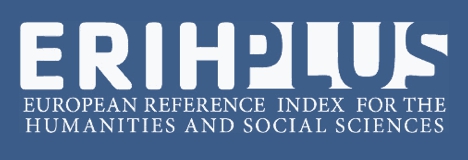Principles of significant critical learning on continued teachers’ formation
Abstract
This article seeks to think about results of a teaching and learning approach applied at the continued formation of Geography teachers in Digital Information and Communication Technologies (DICT) in the context of Critical Significant Learning principles proposed by Moreira (2005). The course was structured to support the Technological and Pedagogical Knowledge of the TPACK (Technological Pedagogical Content Knowledge) Content as a result of an integrated knowledge vision articulated by Mishra & Koehler (2006). Based on a pedagogical context which seems to match the using of digital technologies with Valente's Learning Spiral (2005), with the contributions of Didactics of the Sciences, proposed by Zabala (1998) and with the Critical Significant Learning of Moreira (2005).
References
KOEHLER, M. J., & MISHRA, P. (2008). Introducing Technological Pedagogical Knowledge. In: AACTE (Ed.). The Handbook of Technological Pedagogical Content Knowledge for Educators. Routledge.
MISHRA, Punya; KOEHLER, Matthew J. Technological pedagogical content knowledge: A framework for teacher knowledge. Teachers College Record, 108(6), 1017-1054, 2006.
MOREIRA, Marco A. Aprendizagem significativa crítica. Porto Alegre. 2005.
MOREIRA. M. A. Aprendizagem Significativa Crítica. Publicada também em Indivisa, Boletín de Estúdios e Investigación, nº 6, pp. 83-101, 2005, com o título Aprendizaje Significativo Crítico. 1ª edição, em formato de livro, 2005; 2ª edição 2010.
MOREIRA. M. A. Aprendizagem Significativa Crítica. Versão revisada e estendida de conferência proferida no III Encontro Internacional sobre Aprendizagem Significativa, Lisboa (Peniche), 2000. Publicada nas Atas desse Encontro, p.p. 33-45, com o título original de Aprendizagem significativa subversiva.
NIESS, M. L., RONAU, R. N., SHAFER, K. G., DRISKELL, S. O., HARPER, S. R., JOHNSTON, C., BROWNING, C., ÖZGÜN-KOCA, S. A., & KERSAINT, G. Mathematics Teacher TPACK Standards and Development Model. Contemporary Issues in Technology and Teacher Education, v., n.1,(2009.
SHULMAN, L. S. Knowledge and teaching: foundations of the new reform. Harvard Educational Review, v. 57, n. 1, p. 1-27, 1987.
TARDIF, M.; RAYMOND, D. Saberes, tempo e aprendizagem do trabalho no magistério. Educ. Soc., Campinas, v. 21, n. 73, p. 209-244, 2000. Disponível em: http://www.scielo.br/scielo.php?script=sci_arttext&pid=S0101-73302000000400013&lng=pt&nrm=iso. Acesso em: 11/10/2013.
TEIXEIRA E DANTAS, Lucivalda Sousa; MENDES, Marcelo Alves. A Integração das Tecnologias de Informação e Comunicação (Tic) Na Geografia: Uma Abordagem Interdisciplinar No Processo de Ensino e Aprendizagem. GEONORDESTE, Ano XXI, n.2. 2010.
TOMITA, Luzia Mitiko Saito. Ensino de Geografia: aprendizagem significativa por meio de mapas conceituais. 2009. Tese (Doutorado em Geografia Física) - Faculdade de Filosofia, Letras e Ciências Humanas da USP. São Paulo. 2009.
VALENTE, José Armando. A espiral da espiral de aprendizagem: o processo de compreensão do papel das tecnologias de informação e comunicação na educação. Campinas, SP: [s.n.].Tese (Livre Docência). Universidade Estadual de Campinas, Instituto de Artes, 2005.
ZABALA, A. A Prática Educativa: como ensinar. Porto Alegre: Arte
Keywords

This work is licensed under a Creative Commons Attribution-NonCommercial 4.0 International License.
Policy Proposal for Free Access Journals
Authors who publish in this journal agree to the following terms:
a. Authors retain the copyright and grant the journal the right of first publication, with the work simultaneously licensed under the Creative Commons Attribution License which allows the sharing of the work with acknowledgment of the authorship of the work and initial publication in this journal.
b. Authors are authorized to take additional contracts separately, for non-exclusive distribution of the version of the work published in this journal (eg publish in institutional repository or as a book chapter), with acknowledgment of authorship and initial publication in this journal.
c. Authors are allowed and encouraged to publish and distribute their work online (eg in institutional repositories or on their personal page) at any point before or during the editorial process, as this can generate productive changes, as well as increase the impact and The citation of published work (See The Effect of Free Access).





















